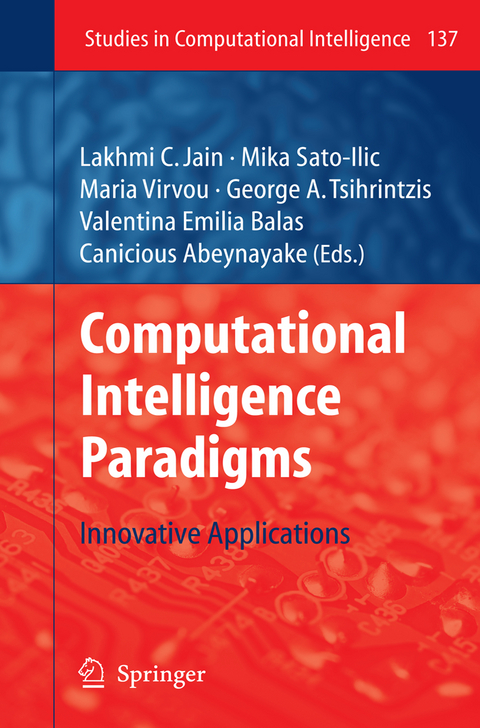
Computational Intelligence Paradigms
Springer Berlin (Verlag)
978-3-642-09839-0 (ISBN)
System designers are faced with a large set of data which has to be analysed and processed efficiently. Advanced computational intelligence paradigms present tremendous advantages by offering capabilities such as learning, generalisation and robustness. These capabilities help in designing complex systems which are intelligent and robust.
The book includes a sample of research on the innovative applications of advanced computational intelligence paradigms. The characteristics of computational intelligence paradigms such as learning, generalization based on learned knowledge, knowledge extraction from imprecise and incomplete data are the extremely important for the implementation of intelligent machines. The chapters include architectures of computational intelligence paradigms, knowledge discovery, pattern classification, clusters, support vector machines and gene linkage analysis. We believe that the research on computational intelligence will simulate great interest among designers and researchers of complex systems. It is important to use the fusion of various constituents of computational intelligence to offset the demerits of one paradigm by the merits of another.
An Introduction to Computational Intelligence Paradigms.- A Quest for Adaptable and Interpretable Architectures of Computational Intelligence.- MembershipMap: A Data Transformation for Knowledge Discovery Based on Granulation and Fuzzy Membership Aggregation.- Advanced Developments and Applications of the Fuzzy ARTMAP Neural Network in Pattern Classification.- Large Margin Methods for Structured Output Prediction.- Ensemble MLP Classifier Design.- Functional Principal Points and Functional Cluster Analysis.- Clustering with Size Constraints.- Cluster Validating Techniques in the Presence of Duplicates.- Fuzzy Blocking Regression Models.- Support Vector Machines and Features for Environment Perception in Mobile Robotics.- Linkage Analysis in Genetic Algorithms.
| Erscheint lt. Verlag | 30.11.2010 |
|---|---|
| Reihe/Serie | Studies in Computational Intelligence |
| Zusatzinfo | VIII, 281 p. |
| Verlagsort | Berlin |
| Sprache | englisch |
| Maße | 155 x 235 mm |
| Gewicht | 445 g |
| Themenwelt | Informatik ► Theorie / Studium ► Künstliche Intelligenz / Robotik |
| Mathematik / Informatik ► Mathematik ► Angewandte Mathematik | |
| Technik | |
| Schlagworte | algorithm • algorithms • Architecture • Calculus • classification • cluster analysis • clusters • Complex Systems • Computational Intelligence • fuzzy • Gene Linkage Analysis • Genetic algorithms • Intelligence • Knowledge • Knowledge Discovery • Künstliche Intelligenz • learning • linear optimization • Pattern classification • Support Vector Machines |
| ISBN-10 | 3-642-09839-8 / 3642098398 |
| ISBN-13 | 978-3-642-09839-0 / 9783642098390 |
| Zustand | Neuware |
| Haben Sie eine Frage zum Produkt? |
aus dem Bereich


